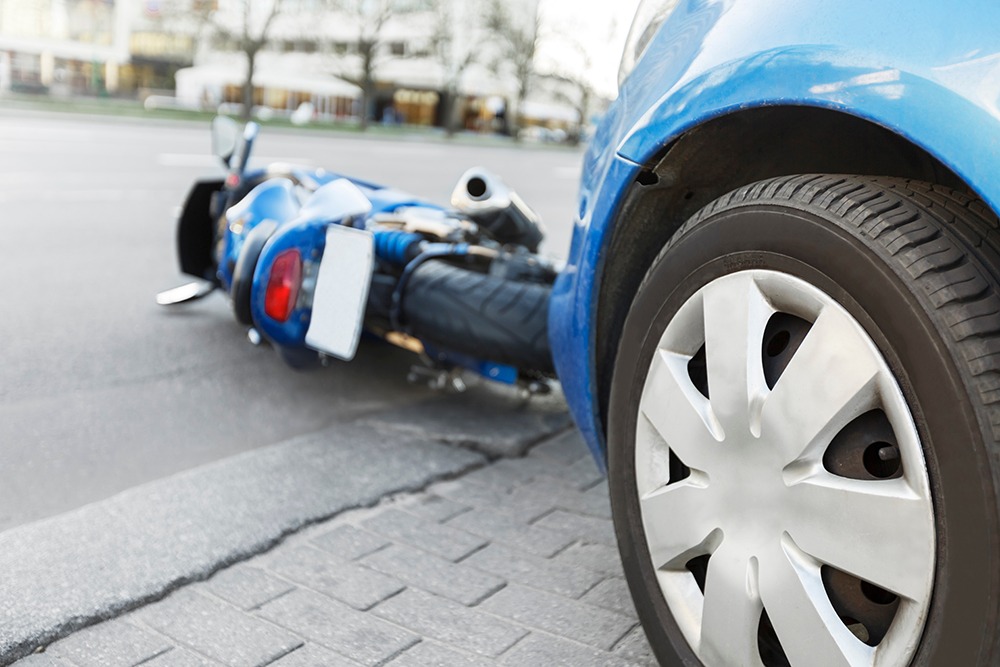The Truth About Motorcycle Accidents (And Why It Matters for Riders)
Share:
Motorcycles are thrilling, efficient, and—let’s be honest—just plain cool. But they’re also surrounded by myths that paint riders as reckless, irresponsible, or always at fault in accidents. These stereotypes don’t just create unfair stigma; they can also impact how motorcyclists are treated after a crash, especially when it comes to insurance claims or legal cases.
It’s time to set the record straight. Below, we’ll debunk some of the most common motorcycle accident myths and replace them with the facts every rider—and every driver—needs to know.
Myth #1: Motorcycle Accidents Are Always the Rider’s Fault
The myth: Riders are seen as risk-takers who weave through traffic and ignore the rules of the road, so if an accident happens, they must be to blame.
The fact: Studies show the opposite is often true. According to the National Highway Traffic Safety Administration (NHTSA), in over 60% of multi-vehicle motorcycle accidents, the driver of the other vehicle—not the motorcyclist—was at fault.
One of the biggest culprits? Car drivers making left turns in front of motorcycles, claiming they “didn’t see them.” This isn’t about reckless riding—it’s about visibility and awareness.
Takeaway: Motorcyclists have the same right to the road as any other vehicle, and drivers share responsibility for keeping them safe.
Myth #2: Helmets Don’t Really Help in Serious Crashes
The myth: Some riders believe helmets won’t protect them in a severe crash, so why bother?
The fact: Helmets are life-savers. The CDC reports that helmets reduce the risk of head injury by 69% and the risk of death by 37% in motorcycle accidents. They can mean the difference between walking away from a crash and suffering permanent brain damage.
Takeaway: Wearing a helmet isn’t just smart—it drastically increases your chances of survival.
Myth #3: Lane Splitting Is Inherently Reckless
The myth: Lane splitting—riding between slow or stopped lanes of traffic—is often portrayed as reckless and dangerous.
The fact: While lane splitting is controversial in many states (and illegal in Florida and Georgia), research suggests that when done safely, it can actually reduce the risk of rear-end collisions. California, for example, has legalized and regulated lane splitting, citing studies that show it may improve safety in certain conditions.
Takeaway: Lane splitting laws vary by state, but the idea that it’s always reckless is a misconception. Context—and rider behavior—matters.
Myth #4: Motorcyclists Don’t Carry Insurance
The myth: Some assume that motorcyclists avoid carrying insurance, leaving others to foot the bill in an accident.
The fact: In most states, including Florida and Georgia, motorcyclists are legally required to carry insurance, just like car drivers. In fact, riders often carry higher levels of coverage, knowing the risks of serious injury are greater.
Takeaway: Don’t believe the stereotype—motorcyclists are just as insured and financially responsible as other drivers on the road.
Myth #5: Most Motorcycle Accidents Happen at Night
The myth: People picture motorcycle accidents happening late at night on dark, empty roads.
The fact: NHTSA data shows that the majority of motorcycle accidents actually occur during daylight hours, often in busy traffic. The real risk isn’t riding at night—it’s riding during high-traffic periods when other drivers may be distracted or fail to notice motorcycles.
Takeaway: Accidents can happen anytime, but most crashes happen in broad daylight, when motorcyclists are sharing congested roads with cars.
Myth #6: Speeding Is the Main Cause of Motorcycle Crashes
The myth: Motorcyclists are often stereotyped as speed demons, so people assume speeding is the number one cause of accidents.
The fact: While speeding can be a factor, studies show that driver inattention and failure to yield are more common causes. Many accidents occur at relatively low speeds—like intersections—where drivers fail to see or properly gauge the distance of motorcycles.
Takeaway: Most crashes aren’t about reckless speed—they’re about other drivers not paying attention.
Myth #7: If You’re Injured in a Motorcycle Accident, You Don’t Need a Lawyer
The myth: Some riders think insurance companies will “do the right thing,” so hiring a lawyer is unnecessary.
The fact: Insurance companies often work to minimize payouts, and motorcyclists are especially vulnerable to bias. An attorney can gather evidence, challenge unfair stereotypes, and fight for full compensation—including medical expenses, lost wages, and pain and suffering.
Takeaway: If you’ve been in a motorcycle accident, consulting an attorney can dramatically improve your chances of getting the settlement you deserve.
Final Thoughts: Dispelling the Myths, Protecting Riders
Motorcycles may be smaller than cars, but the myths about them loom large. From assumptions about fault to misconceptions about helmets and insurance, misinformation hurts riders twice—first in how they’re perceived, and again in how their cases are handled after an accident.
The truth is clear: motorcyclists are not reckless by default, and they deserve the same rights, respect, and protections as any driver on the road. By busting these myths, we can help create safer roads for everyone.
At DuFault Law, we’re proud to stand up for injured riders across Florida and Georgia. If you’ve been involved in a motorcycle accident, we’ll fight to cut through the myths, prove the facts, and get you the compensation you deserve.
Injured in a Motorcycle Accident? Don’t Let Myths Cost You Compensation.
Insurance companies often rely on stereotypes about reckless riders to deny or reduce claims—but the truth is on your side. If you’ve been hurt in a motorcycle accident in Florida or Georgia, the attorneys at DuFault Law will fight to cut through the myths, prove the facts, and get you the justice you deserve.
- Call us at (239) 422-6400
- Email us at contact@dufaultlaw.com
- Or Visit our Contact Page to schedule a consultation



Comments are closed